This Type Of Carb Is The Secret To Staying Fuller Longer, Experts Agree

If you're thinking about nixing carbs for health reasons, stop right there—you might miss out on some serious benefits. There are two main categories of carbs: simple and complex, and each has their time and place. Complex carbohydrates are commonly found in whole grains, fruits, vegetables, and legumes and they pack a more nutritious punch compared to simple carbs from sugary items like soda, baked goods, and fruit juices to staples like white bread, white pasta, and white rice.
Between the two, you might want to prioritize complex carbohydrates, says Amy Stephens, RDN, a dietician specializing in sports nutrition. They’ve got more nutrients and they’re less likely to spike your blood sugar. “Complex carbs are the best fuel source for anyone that just needs a steady supply of energy,” she says.
To make it easy to add more complex carbs to your plate, keep this list on hand for your next trip to the grocery store.
Meet the expert: Ha Nguyen, RDN, is the founder of Yummy Body Nutrition. Amy Stephens, RDN, is a dietician specializing in sports nutrition. Keri Glassman, RDN, is a nutritionist, the founder of Nutritious Life, and a WH Advisory Board member.
What’s the difference between complex and simple carbs?
Like the name suggests, complex carbs have a lot more going on compared to simple carbs. They take longer for your body to digest so you avoid the blood sugar spike you'd get with simple carbs, says Ha Nguyen, RDN, the founder of Yummy Body Nutrition. (While blood sugar spikes aren’t always bad, if you don’t need the extra energy, levels could stay elevated and lead to inflammation, explains Stephens.) Since complex carbs take longer to break down, they also keep you fuller, longer. Plus, they provide vitamins, minerals, and fiber that are important to your health, according to the National Library of Medicine.
You’re going to want to have a steady flow of complex carbs all throughout your day, except for one time: right before a workout. This is because they can feel pretty heavy while being digested, says Stephens. “Complex carbs are great pretty much all other times in the diet except around exercise,” she says.
Simple carbs are digested a lot faster. But if you’re about to hit the gym, take the field, or go on a run, you’re going to want a simple carb. Dried or fresh fruit, Gatorade, pretzels, or energy bars like Nutri Grain bars are all examples of simple carbs you could grab right before or during a workout, says Stephens.
Skip these simple carbs
While simple carbs are great when you need a quick-hit of energy, it’s best to prioritize complex carbs for all other times. The reason is that simple carbs like soda, candy, and even white pasta just don’t offer that much sustenance, says Keri Glassman, RDN, creator of Nutritious Life and WH Advisory Board member. “You're getting calories with no nutritional value,” she says. One difference between candy and pasta though is that you tend to eat noodles with other things that add nutritional value, like sauce or protein.
The Best Complex Carbs For Fueling
Bananas
The post-5K mainstay is made up of mostly complex carbohydrates, plus a healthy kick of vitamins and potassium, which is good for electrolyte balance and blood pressure regulation, says Stephens. Bananas are an easy and inexpensive option that you can eat on their own or added to a smoothie or yogurt, she says.
Per serving (1 medium): 105 calories, 0.4 g fat (0.1 g saturated), 27 g carbs, 14 g sugar, 1 mg sodium, 3.1 g fiber, 1.3 g protein
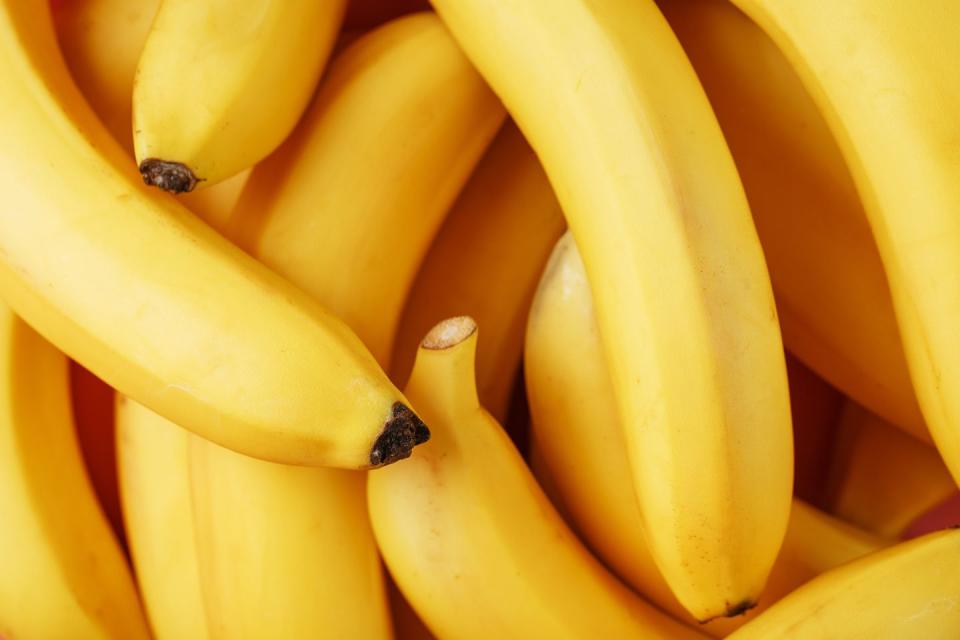
Millet
Meet millet, which is a great go-to if your stomach is sensitive to gluten or you have celiac disease. This gluten-free grain is a rich source of magnesium, phosphorus, and potassium, not to mention protein.
Per serving (1 cup, cooked): 207 calories, 1.74 g fat (0.3 g saturated), 41.19 g carbs, 0.23 g sugar, 3 mg sodium, 2.3 g fiber, 6.11 g protein
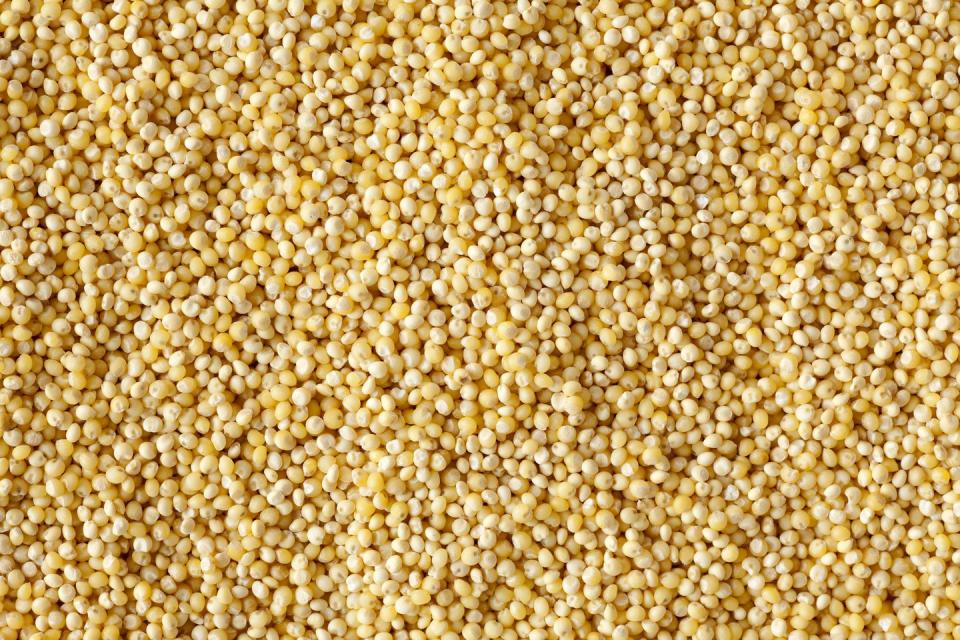
Broccoli
You know these green guys are good for you, but did you know they're actually an ace source of complex carbs? The carbs primarily come from fiber, which is key for digestive health and regulating blood sugar levels.
Per serving (1 cup, chopped): 31 calories, 0.3 g fat (0 g saturated), 6 g carbs, 1.5 g sugar, 30 mg sodium, 2.4 g fiber, 2.6 g protein
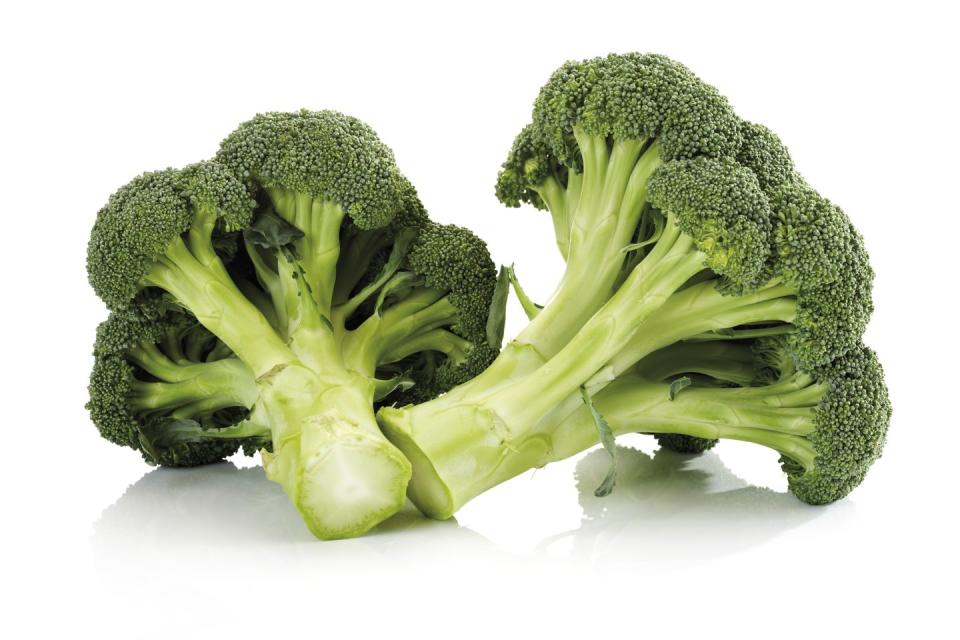
Chickpeas
One cup of chickpeas packs an impressive 11 grams of protein and 10 grams of fiber (one-third of the minimum recommended daily fiber intake, which is about 30 grams). They’re also gluten-free and rich in calcium and phosphate, both of which are important for bone health.
Add them to your salads, mix with cucumbers, feta, tomatoes, olive oil, and red wine vinegar, or roast them with paprika, garlic powder, and salt, Stephens suggests.
Per serving (1 cup, cooked or canned): 270 calories, 4 g fat (0 g saturated), 45 g carbs, 8 g sugar, 11 mg sodium, 13 g fiber, 15 g protein
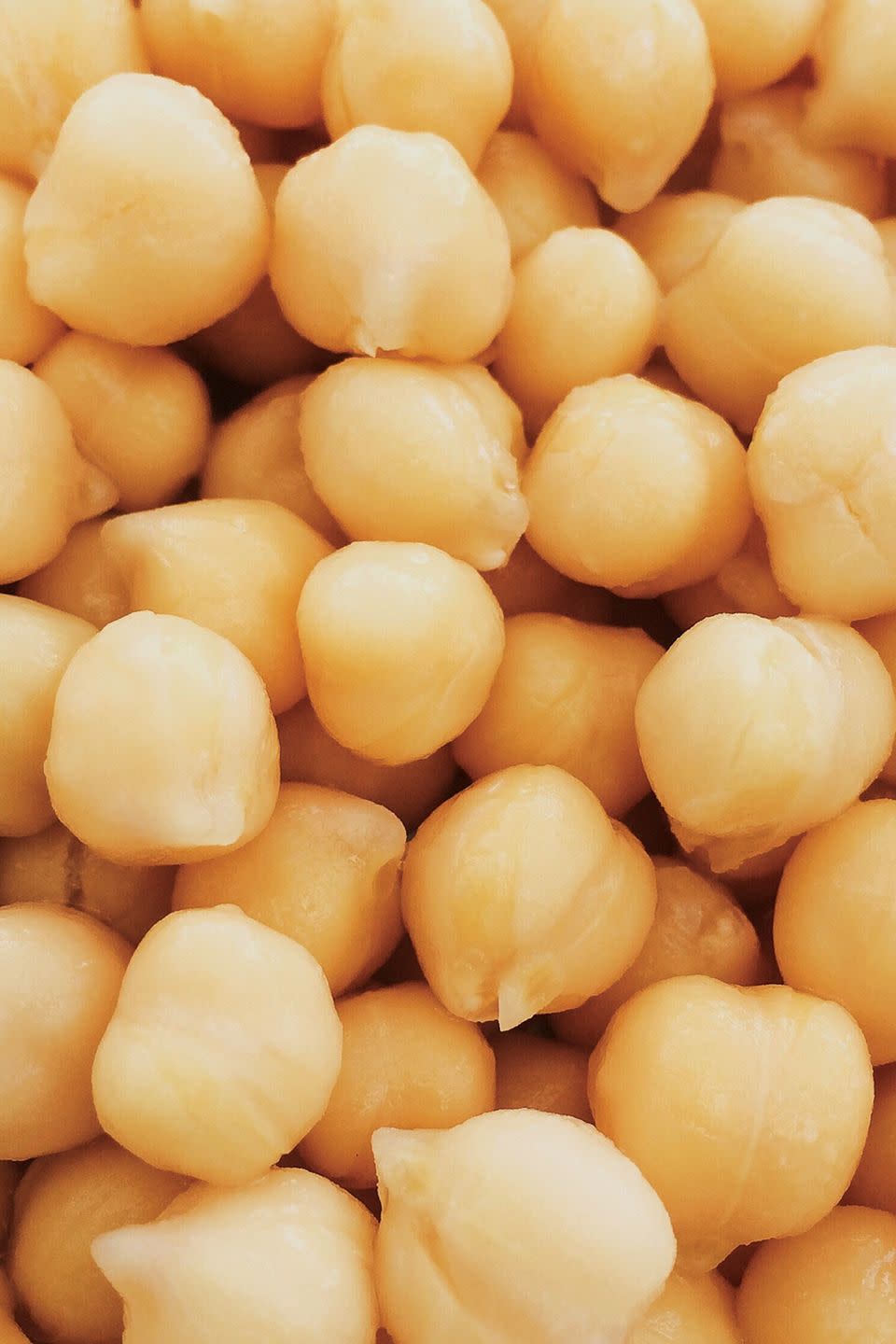
Carrots
Craving something crunchy? Get your fix with this colorful root veggie, which is a particularly good source of beta carotene, potassium, and antioxidants. We love 'em tucked into a veggie sandwich.
Per serving (1 medium): 25 calories, 0.2 g fat (0.02 g saturated), 5.8 g carbs, 2.9 g sugar, 42.1 mg sodium, 1.7 g fiber, 0.57 g protein
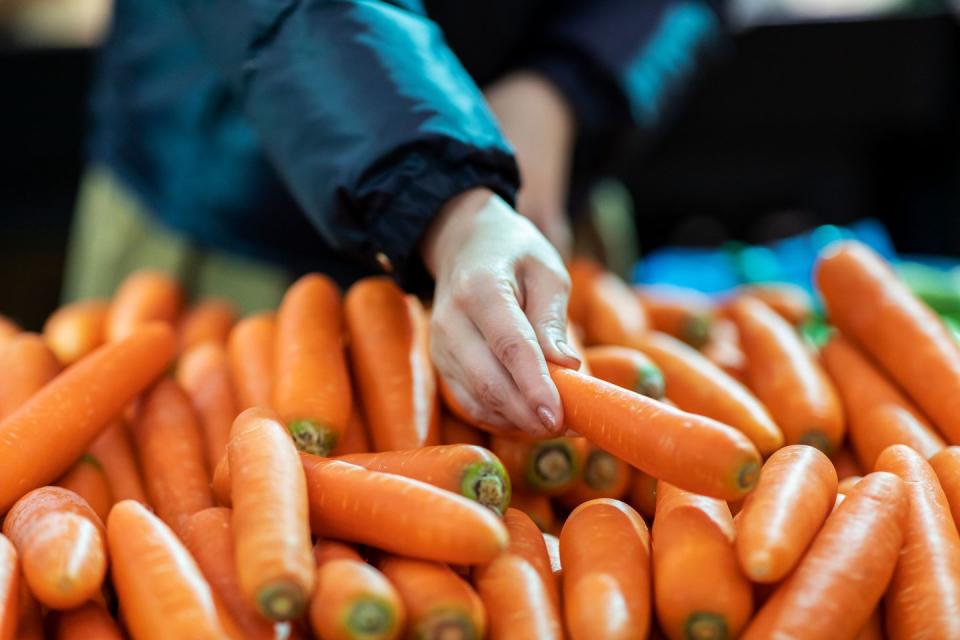
Old-Fashioned Oats
Old-fashioned oats (also called rolled oats) are packed with magnesium, iron, folate, B vitamins, and other important nutrients. Regular intake of the soluble fiber in oats has also been shown to help reduce LDL cholesterol (a.k.a. the bad kind).
Not only are oats a good source of complex carbs, but they’re also an easy solution to a busy morning. Make overnight oats as an easy grab and go breakfast option, says Stephens.
Per serving (1/2 cup, dry): 150 calories, 3 g fat (0 g saturated), 27 g carbs, 1 g sugar, 0 mg sodium, 4 g fiber, 5 g protein
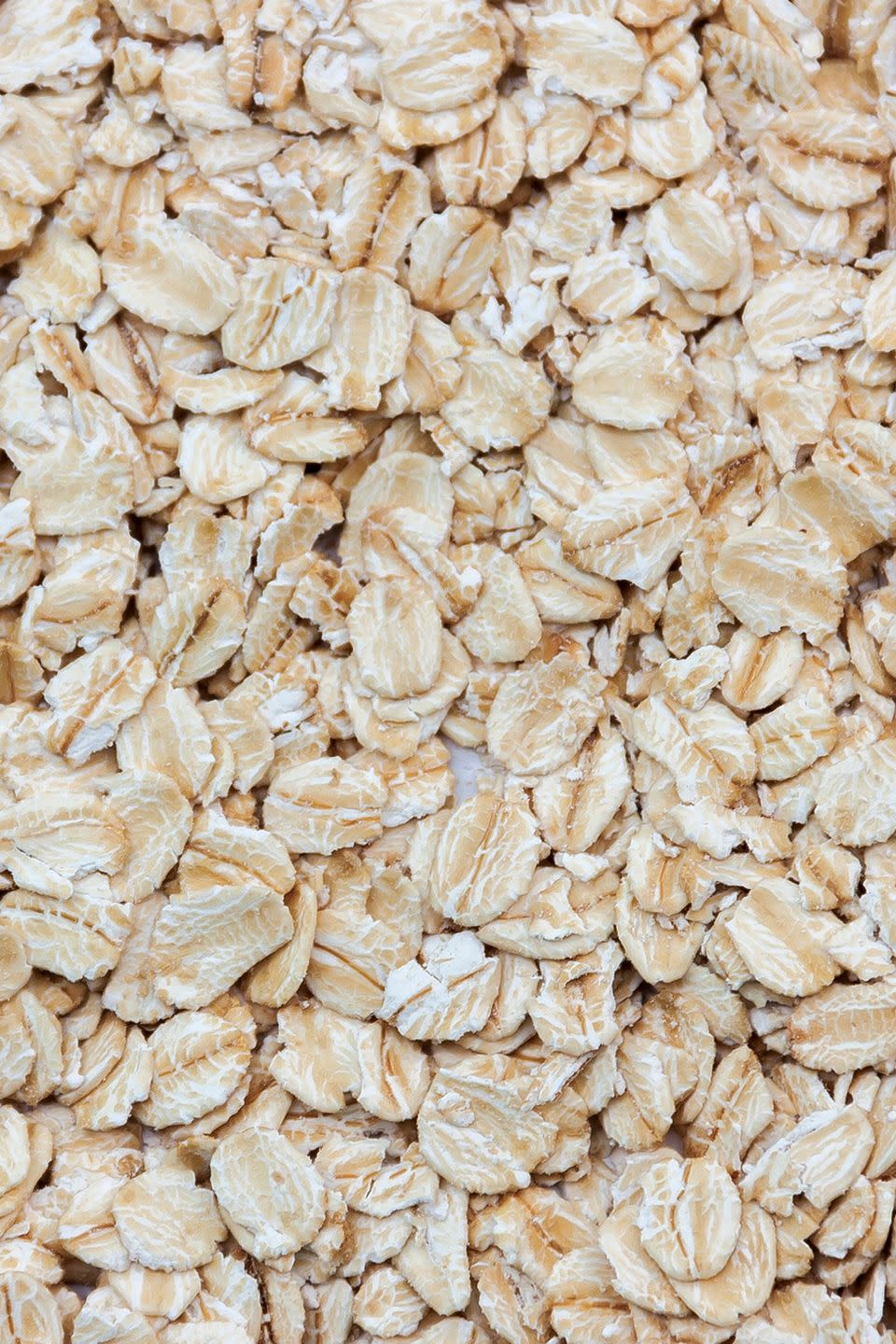
Barley
Don’t dismiss this chewy, slightly nutty grain. One cup of cooked barley packs six grams of fiber, which is essential for good gut health and may help lower cholesterol levels too, boosting cardiovascular health.
Per serving (1 cup, cooked pearled): 193 calories, 0.69 g fat (0.15 g saturated), 44.3 g carbs, 0.44 g sugar, 5 mg sodium, 6 g fiber, 3.55 g protein
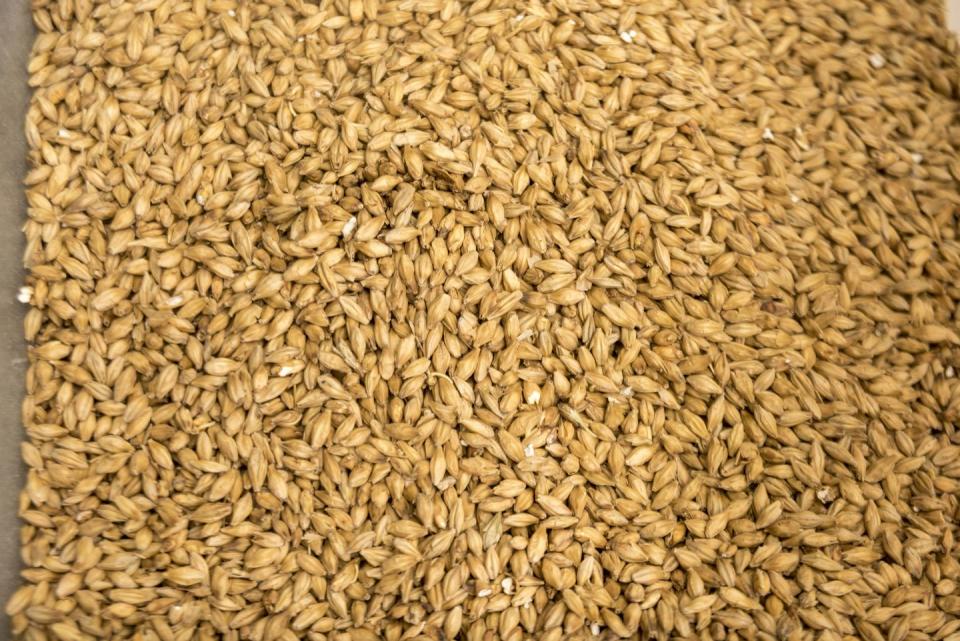
Sweet potatoes
The sugar in sweet potatoes is released slowly into your bloodstream, thanks to the fiber that comes along with it. The starchy root vegetable is also high in vitamin C, which helps boost immunity and beta carotene, which is linked to reduced risk of heart disease and certain cancers.
Per serving (1 small sweet potato, 130 g, raw): 112 calories, 0 g fat (0 g saturated), 26 g carbs, 5 g sugar, 72 mg sodium, 4 g fiber, 2 g protein.
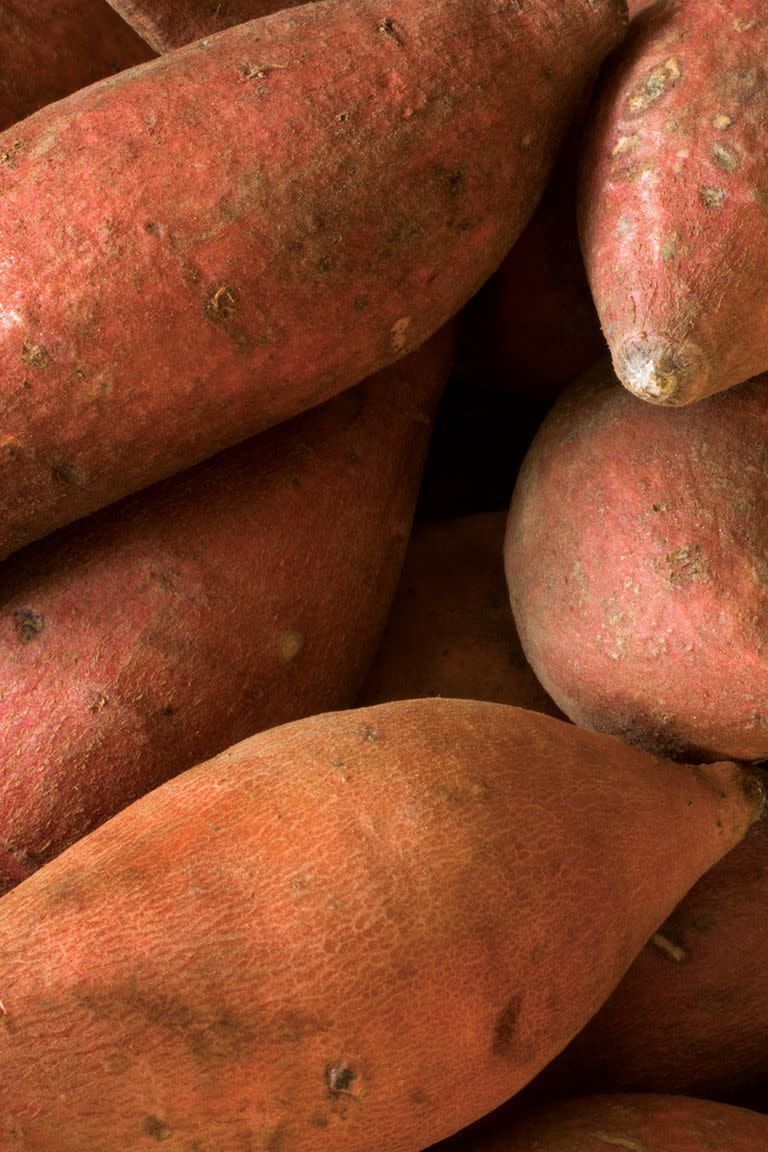
Spelt
Spelt is an ancient grain that delivers more than just a healthy serving of complex carbs. One cup of cooked spelt has 7.6 grams of fiber and 10.67 grams of protein, making it a well-balanced choice. Plus, it has higher amounts of iron, zinc, magnesium, and copper compared to wheat flour and provides roughly one-third of your recommended daily value of phosphorus, a key bone-building mineral.
Per serving (1 cup, cooked): 246 calories, 1.65 g fat, 51.29 g carbs, 10 mg sodium, 7.6 g fiber, 10.67 g protein
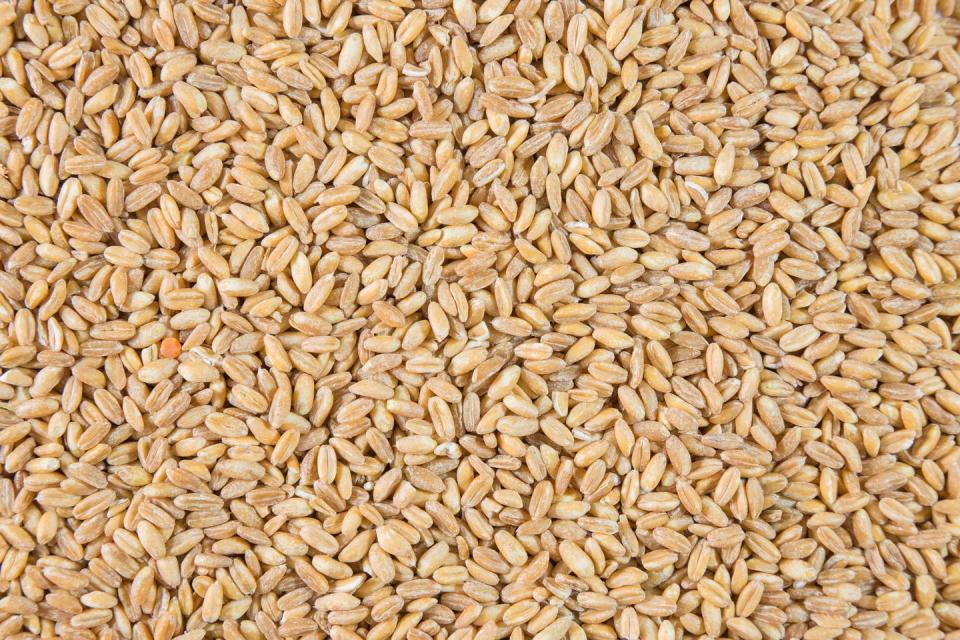
Butternut squash
Because butternut squash is starchy but relatively low in calories, it can be a great swap for more calorie-dense potatoes and sweet potatoes. It’s also high in vitamin E, which promotes healthy skin.
Per serving (1 cup, cubed, raw): 63 calories, 0 g fat (0 g saturated), 16 g carbs, 3 g sugar, 6 mg sodium, 3 g fiber, 1 g protein.
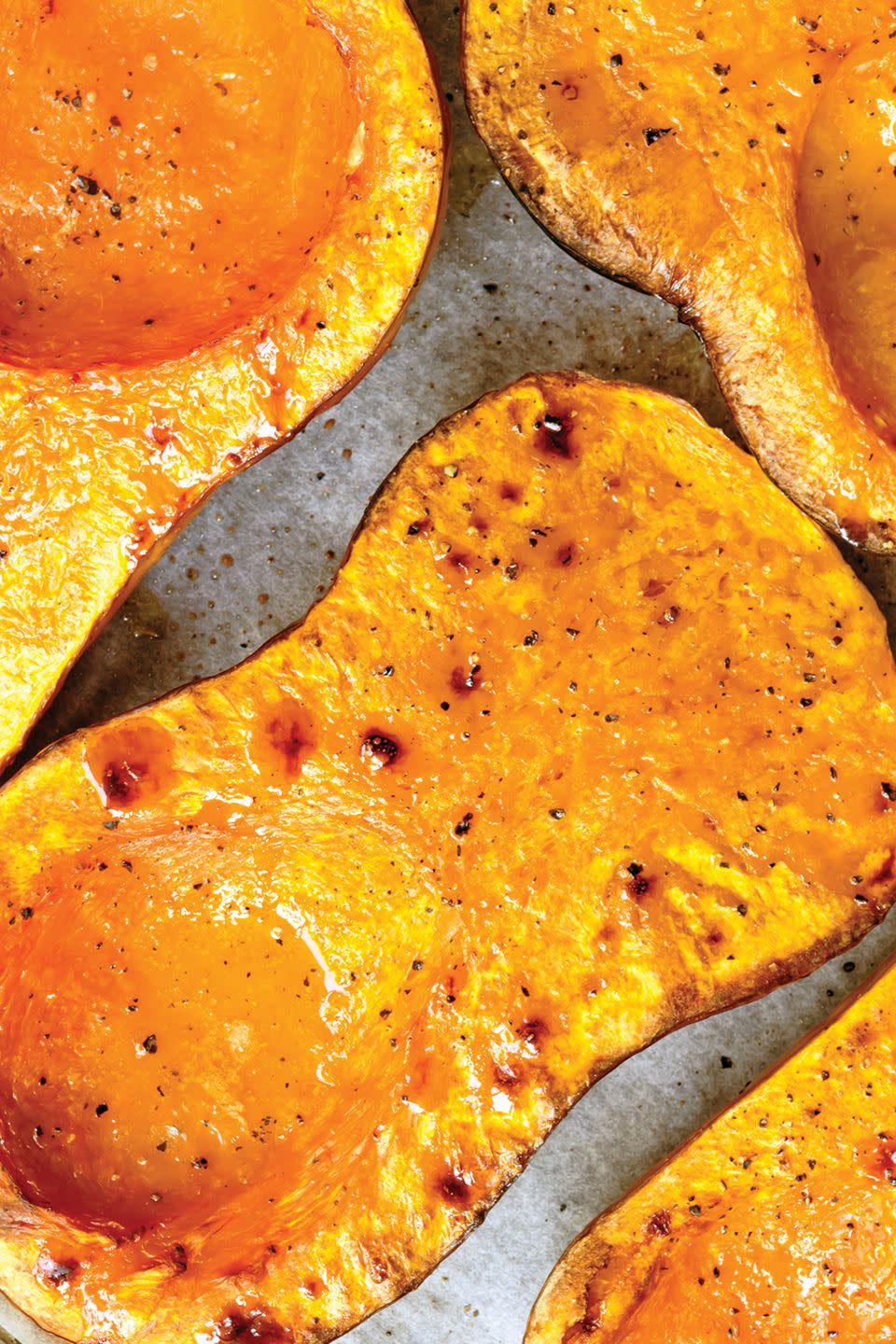
Potatoes
Regular old white potatoes are really good for you, too! One medium potato has more potassium than a banana, which makes them great for managing blood pressure.
Plus, if you cook and then cool them before eating, they offer resistant starch, which is great for your gut health because it slows digestion, reduces blood sugar spikes, and reduces inflammation. “Potatoes in particular are considered a prebiotic food because they reach the large intestine partially digested,” says Stephens. “In the large intestine, the potato provides nourishment for beneficial gut bacteria.” They also promote regular bowel movements, she says.
Per serving (1 small potato, 148 g, raw): 110 calories, 0 g fat (0 g saturated), 26 g carbs, 1 g sugar, 0 g sodium, 1 g sugar, 3 g protein.
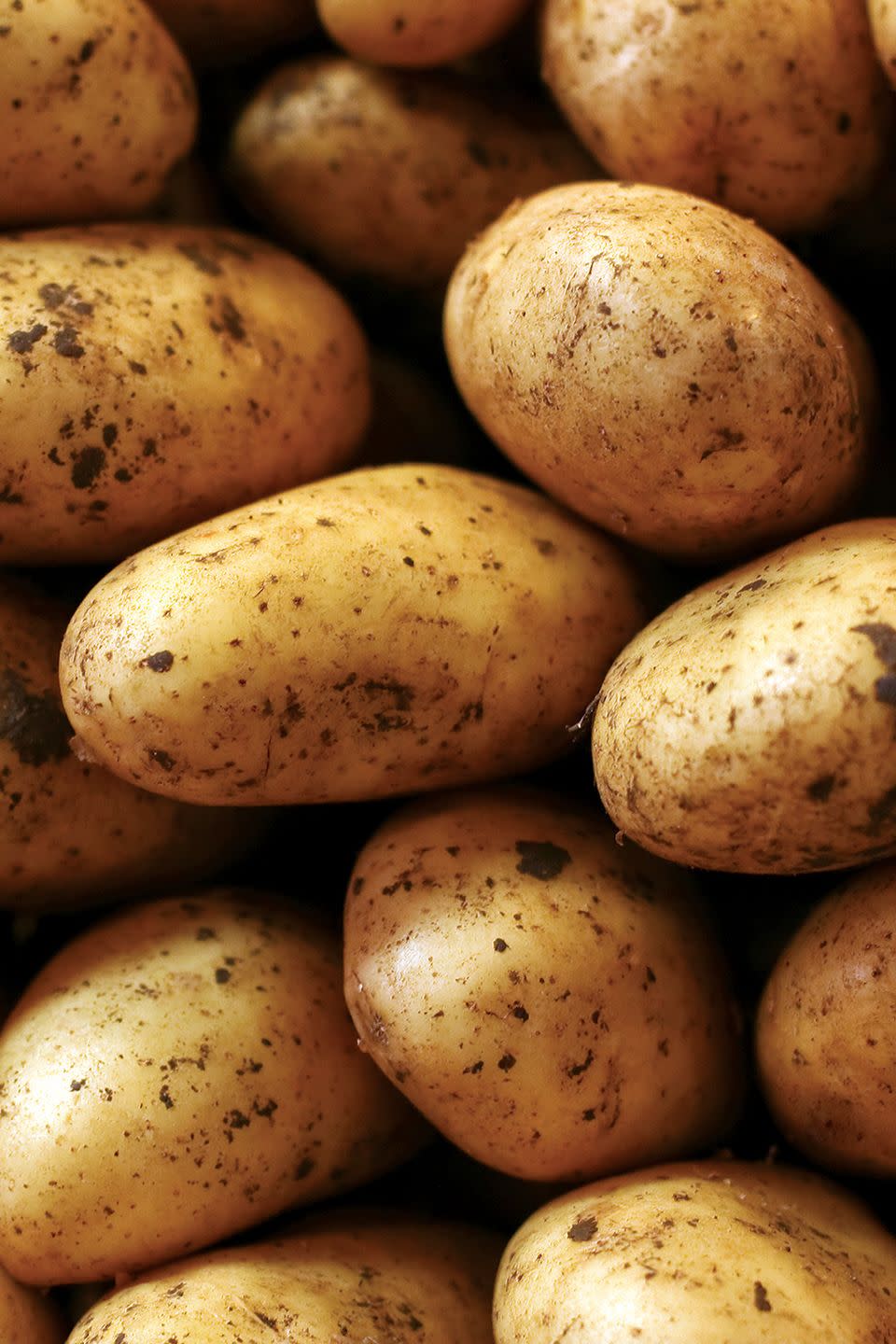
Black Beans
“Beans are a good source of protein and fiber, the two key nutrients that promote satiety,” says Nguyen. “They help you feel full longer. Beans are also a cheap and easy substitute for animal protein.” For all you plant-based folks out there! They’re also easy to add to meals. Stephens likes to sneak them into burritos or quesadillas.
Per serving (1 cup, cooked or canned): 227 calories, 1 g fat (0 g saturated), 41 g carbs, 1 g sugar, 2 mg sodium, 15 g fiber, 15 g protein.
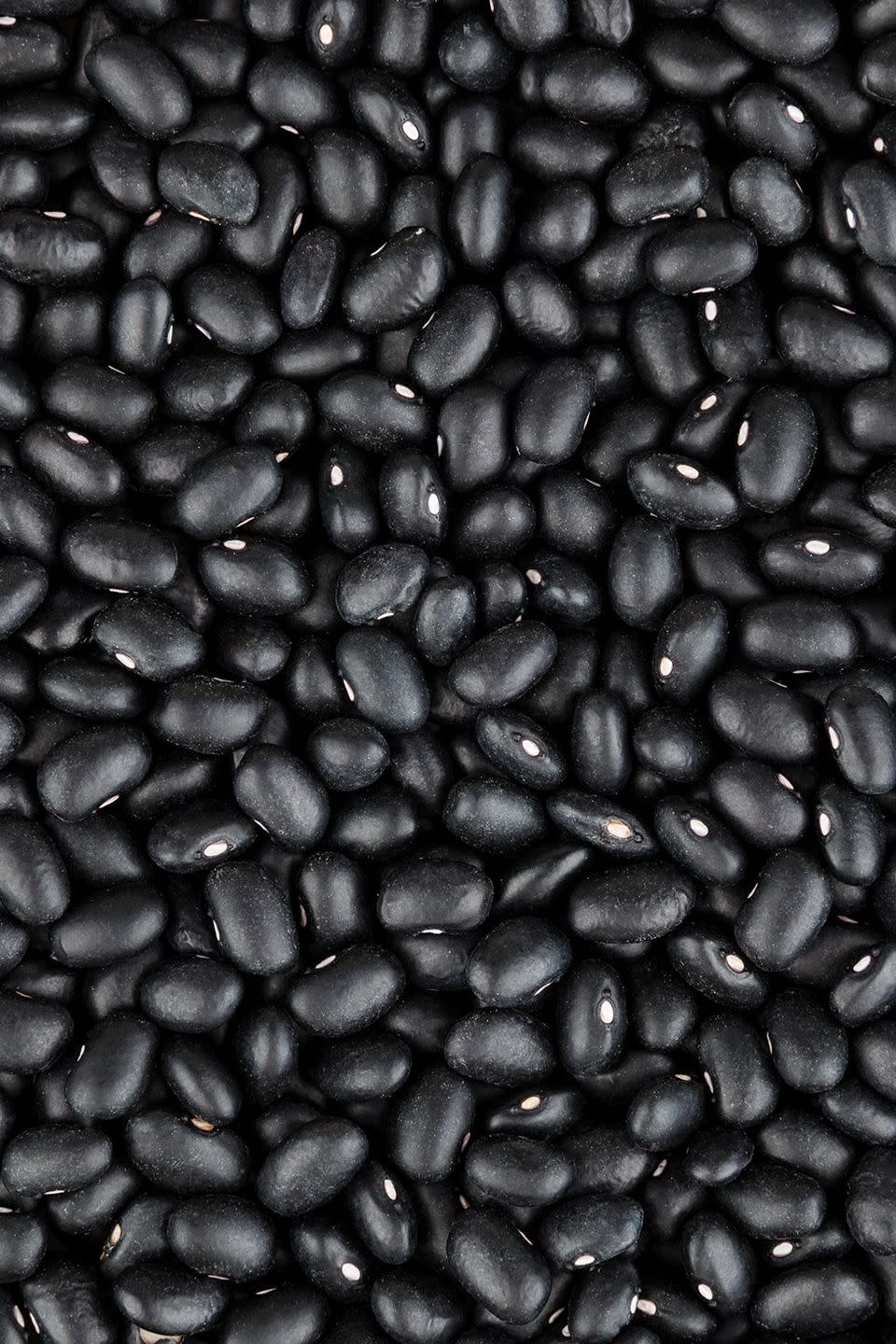
Whole-Wheat Bread
There’s no reason to give up sandwiches in favor of lettuce wraps, but it’s worth double-checking labels to make sure you’re buying bread made with 100 percent whole grains—and not a mix of wheats and additives. You can tell if a product is 100 percent whole grain if it’s the first ingredient on the label, and if it contains at least two to three grams of fiber per serving, says Stephens. Not only can the fiber in whole grains help you maintain a healthy weight, whole grains have also been shown to lower your risk of type 2 diabetes, stroke, and heart disease.
Per serving (1 slice): 81 calories, 1 g fat (0 g saturated), 14 g carbs, 1 g sugar, 146 mg sodium, 2 g fiber, 4 g protein.
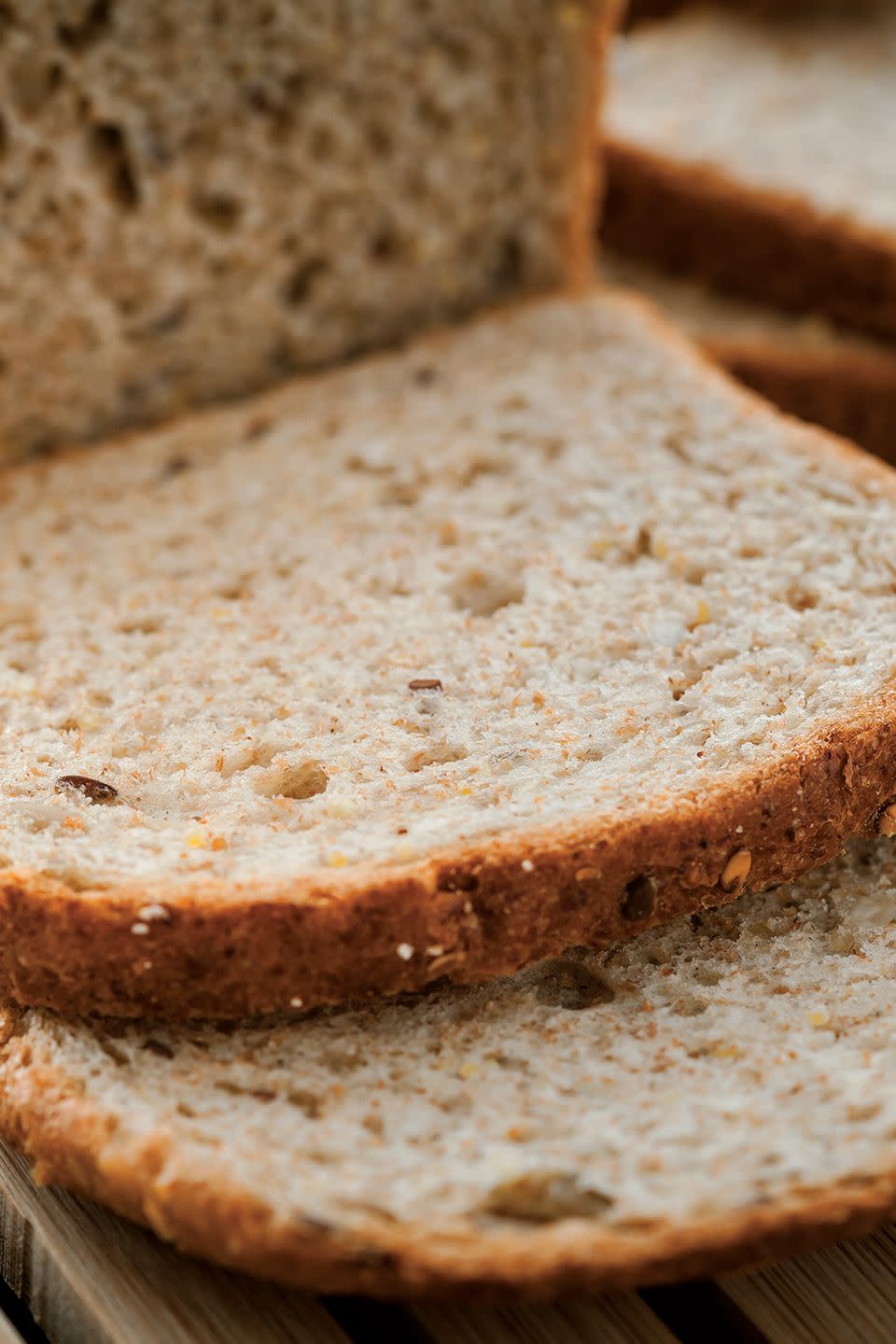
Whole-Wheat Pasta
Again, the key here is to make sure you’re scanning the grocery store aisles for pasta that’s made with 100 percent whole grains (just like you would for bread, check the ingredient list for things like 100 percent whole wheat, whole durum wheat, or whole wheat flour). The fiber in whole-wheat pasta will help you stay full and satisfied, and a cup of cooked pasta is a great vehicle for other healthy foods like vegetables, olive oil, herb-packed pesto, and lean protein.
Per serving (1.2 cup, dry): 200 calories, 2 g fat (0 g saturated), 43 g carbs, 1 g sugar, 0 mg sodium, 6 g fiber, 6 g protein.
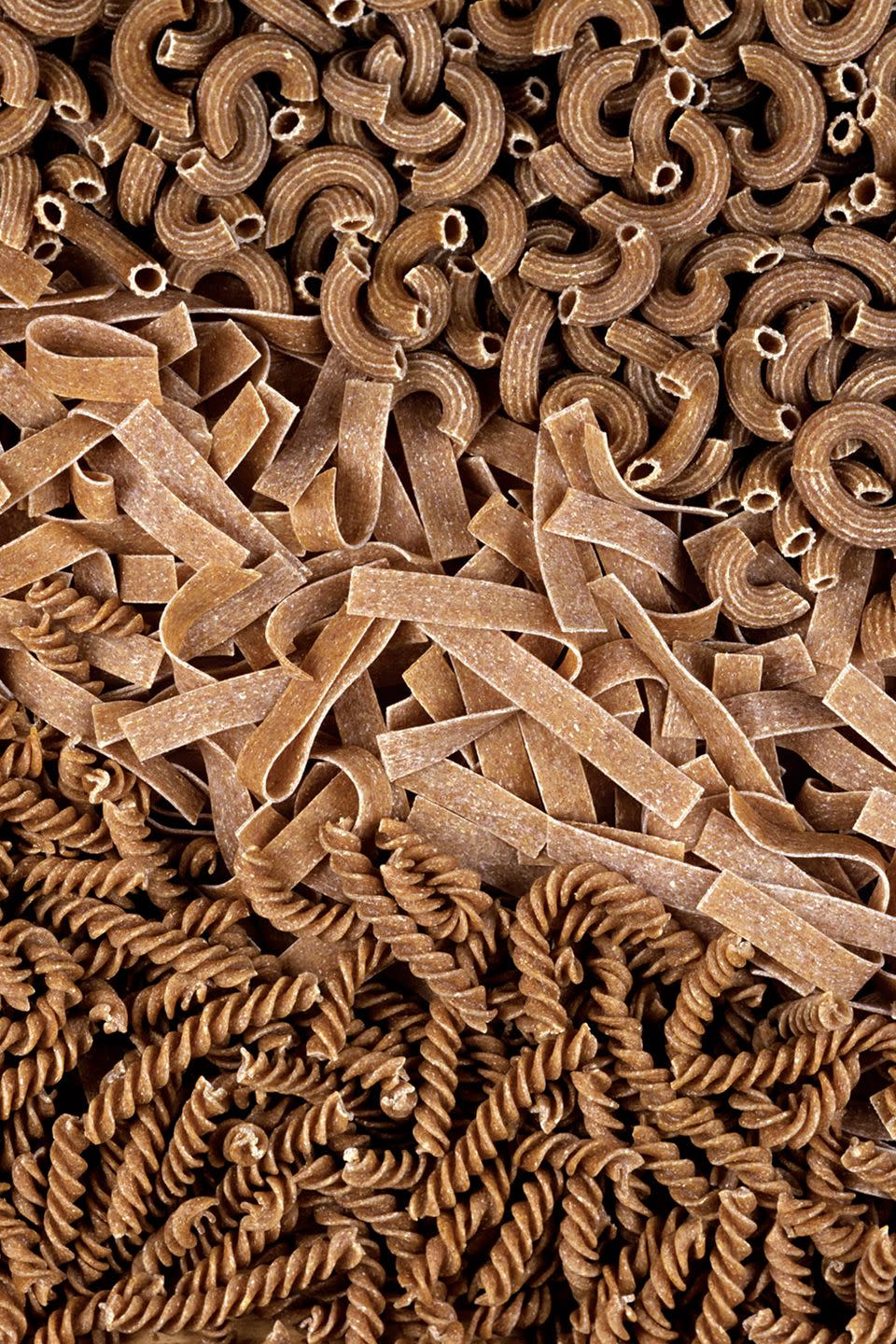
Quinoa
While it’s technically a seed, not a grain (making it naturally gluten-free), quinoa comes with the same heart-healthy benefits as other whole grains, and works the same way in recipes like stir-fries, salads, and grain bowls.
Per serving (1/4 cup, dry): 156 calories, 3 g fat (0 g saturated), 27 g carbs, 1 g sugar, 2 mg sodium, 3 g fiber, 6 g protein.
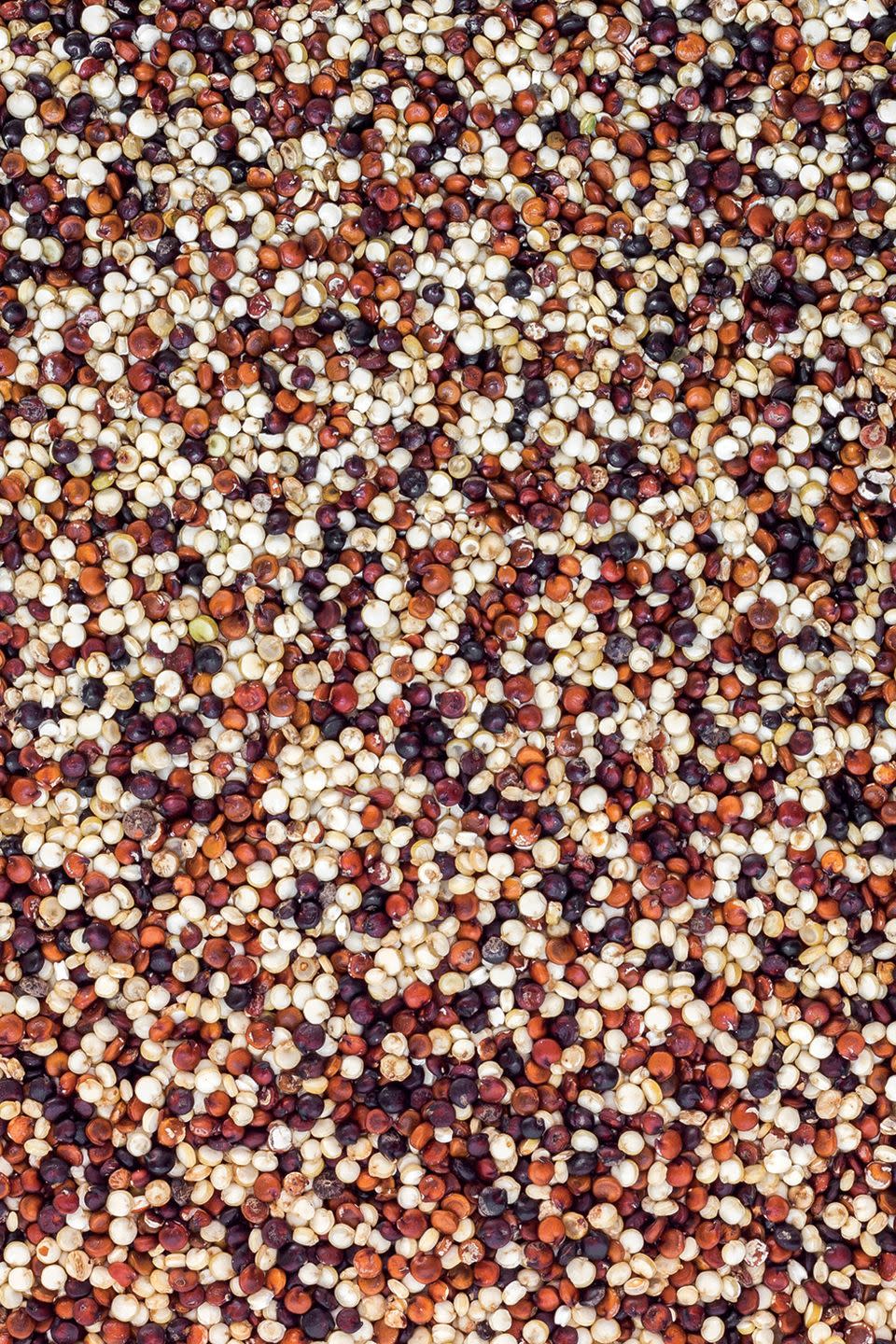
Brown Rice
Brown rice contains the germ, bran, and endosperm of the grain, which means it’s got more fiber, protein, and nutrients than white rice (which is just the endosperm, with the germ and bran removed). Its high fiber content makes it great for satiety and weight maintenance, and it’s got a slew of other important nutrients, such as, iron, zinc, selenium, and B vitamins.
Per serving (1/4 cup, dry): 150 calories, 1.5 g fat (0 g saturated), 32 g carbs, 0 g sugar, 0 mg sodium, 2 g fiber, 3 g protein.

Farro
Like quinoa and brown rice, this nutty grain has loads of heart-healthy benefits, including reduced risk of type 2 diabetes, stroke, and heart disease. It’s also slightly higher in protein and fiber than most other whole grains (making it another great food for weight loss). One thing to note: Farro is a type of wheat, so it’s not gluten-free. Use it to bulk up this Greek Chicken Salad.
Per serving (1/4 cup, dry): 160 calories, 1 g fat (0 g saturated) 33 g carbs, 1 g sugar, 10 mg sodium, 3 g fiber, 5 g protein.
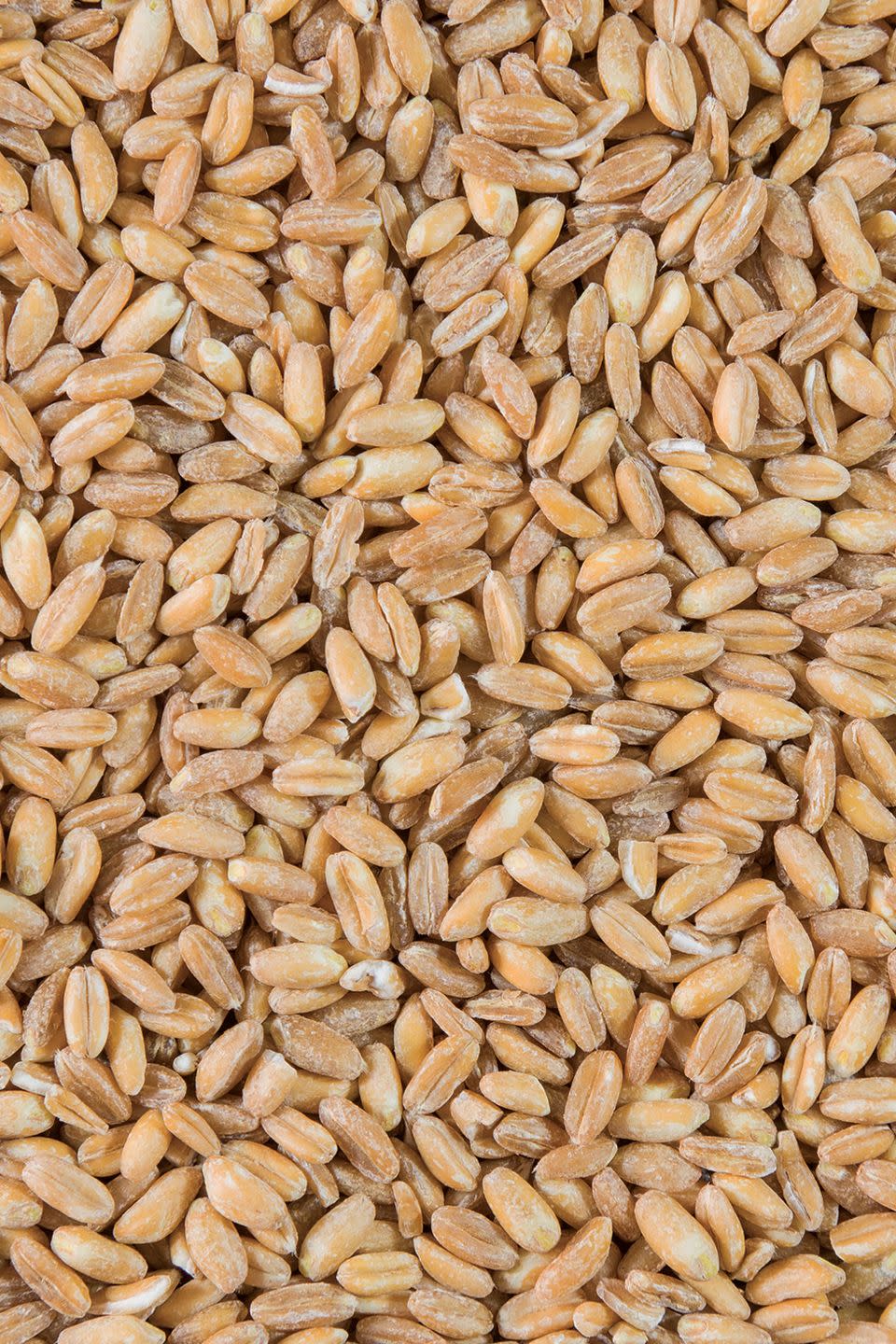
Lentils
Low in fat and high in protein and healthy carbs, lentils make for a cheap, filling alternative to meat in simple meals. One cup of lentils contains 18 grams of protein and 16 grams of fiber, so these inexpensive legumes are guaranteed to fill you up and keep you satisfied.
Per serving (1 cup, cooked): 230 calories, 1 g fat, 40 g carbs, 4 g sugar, 4 mg sodium, 16 g fiber, 18 g protein.
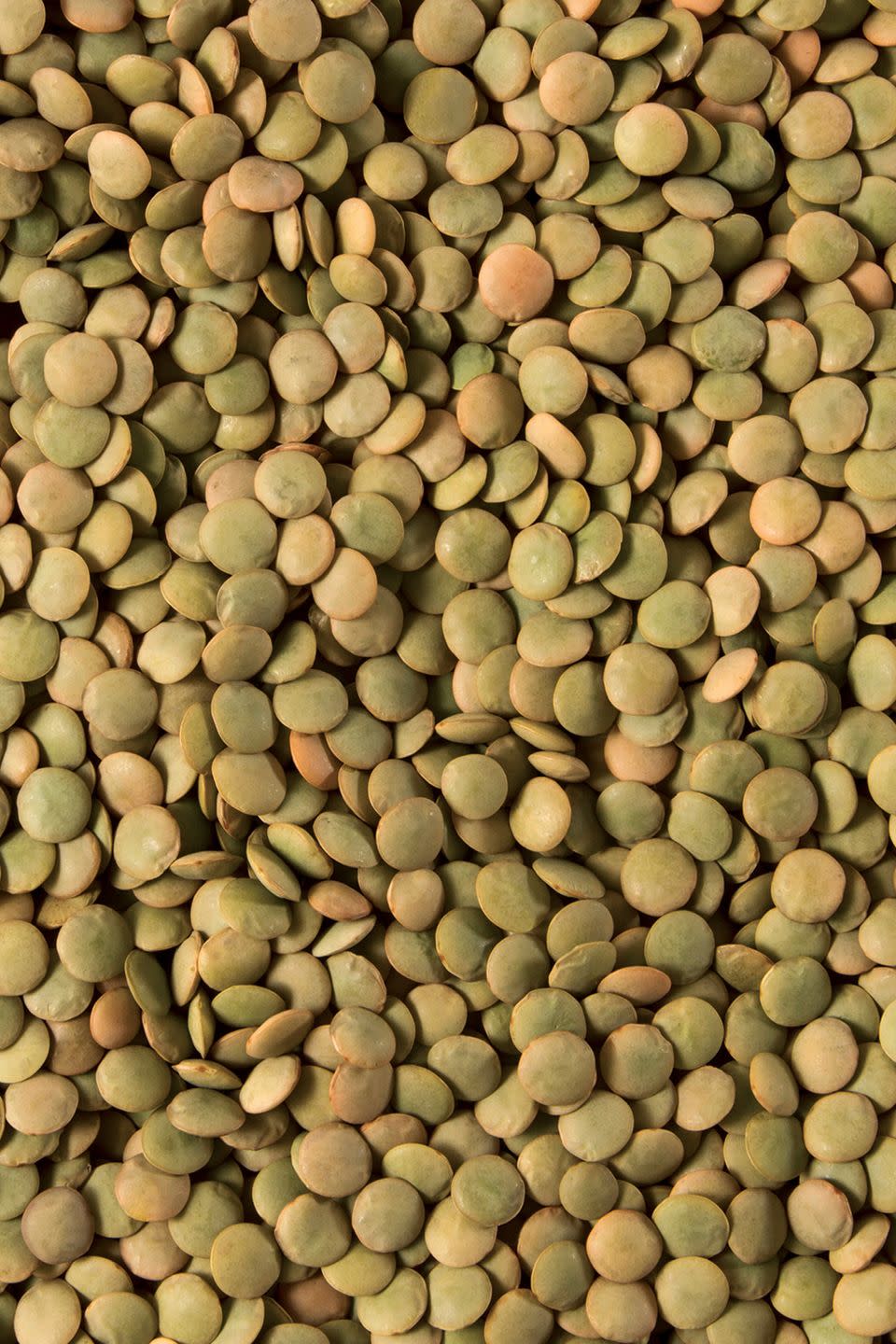
Green Peas
Peas are great for people who need a little more encouragement to eat their vegetables because they’re so easy to sneak into a meal, says Stephens. They’re high in fiber, plus they contain a good amount of vitamin A, vitamin C, vitamin K, and folate.
Per serving (100 g): 81 calories, 0 g fat (0 g saturated), 14 g carbs, 6 g sugar, 5 mg sodium, 6 g fiber, 5 g protein.
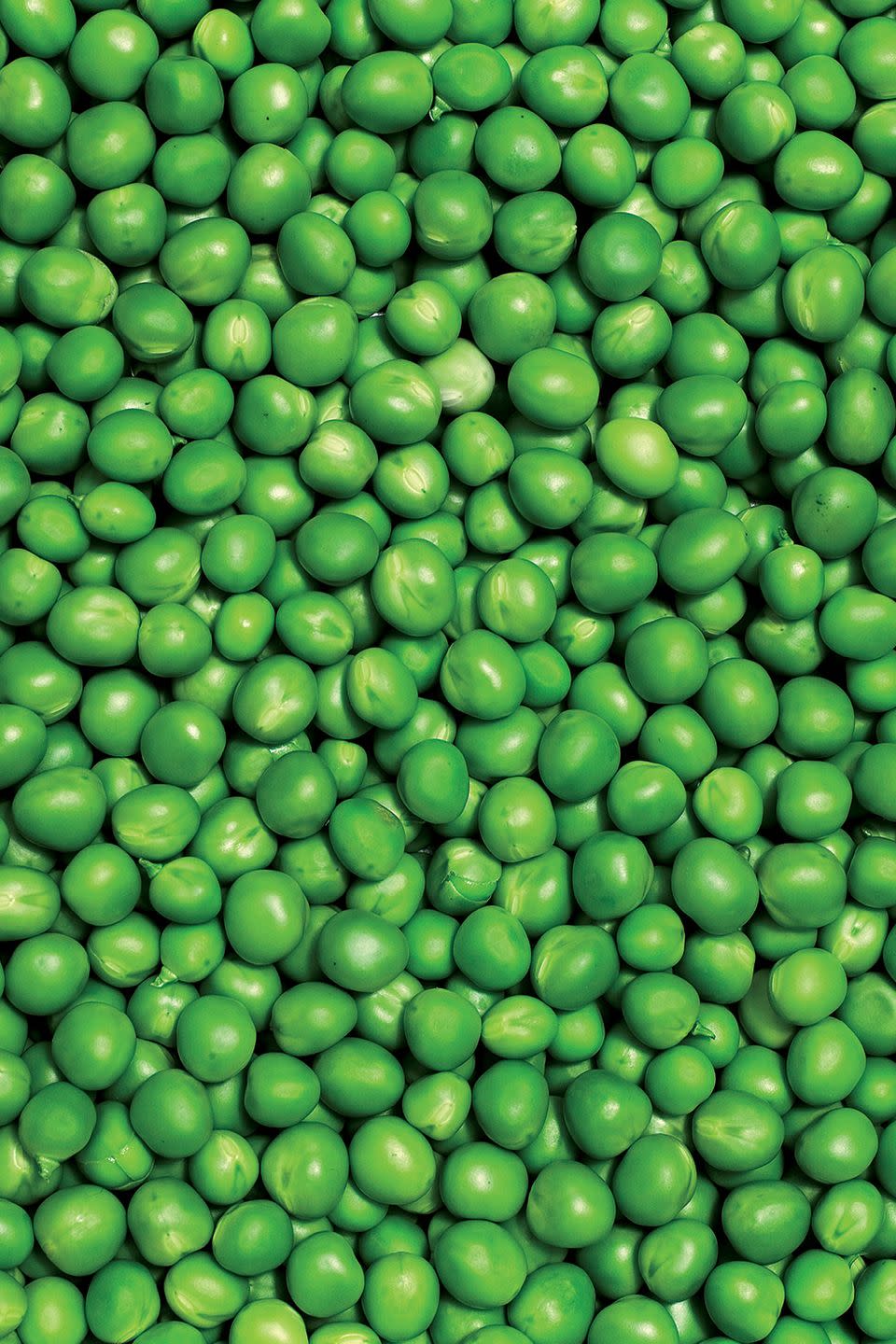
You Might Also Like

 Yahoo Lifestyle
Yahoo Lifestyle 
